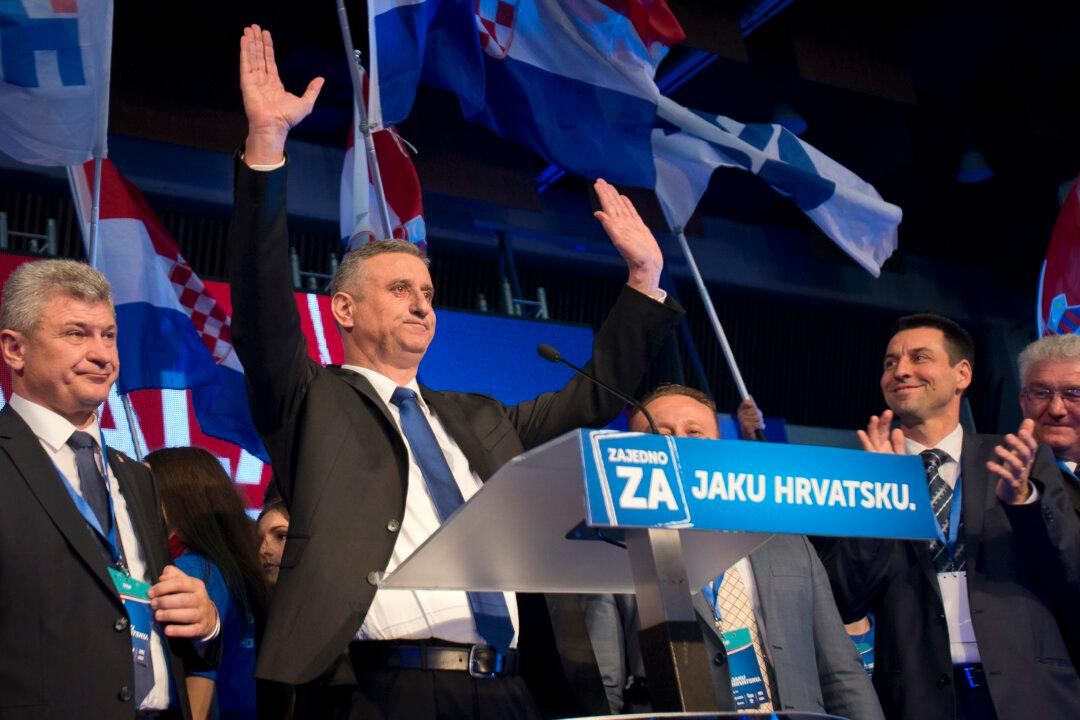ZAGREB, Croatia—Croatia’s conservative opposition has won the Balkan country’s first parliamentary election since joining the European Union in 2013, but without enough votes to rule alone and with tough government negotiations looming.
The state electoral commission said Monday that with 99 percent of the vote counted, the conservatives, led by former intelligence chief Tomislav Karamarko, won 59 seats in the 151-seat parliament. The ruling Social Democrats, led by incumbent Prime Minister Zoran Milanovic, got 56 seats.
The result means both blocs have failed to win an outright majority and the forming of a new government will depend on several small parties that entered parliament.
The kingmaker will be the third-placed party, Most, or Bridge, with 19 seats.
Milanovic called on Most leaders to start negotiations on the forming of a new government.
Before the election, Most leaders pledged they wouldn’t enter a coalition government with any of the big parties, but may give them support in parliament if they offer to carry out radical political, social and economic reforms.
“I don’t believe that either of the big parties will agree with our reform proposals,” Most leader Bozo Petrov said.





